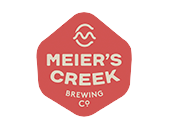Like most industries, the brewing industry has seen significant upheaval in the aftermath of the COVID-19 pandemic. To survive and thrive, craft brewers had to learn how to adapt, adjust, and find new ways to maximize their revenue flow.
At the same time, the industry continues to get more competitive. BevNET Magazine reports that, in 2022, more than 550 new breweries opened in the United States alone—alongside 200 closures. With brewers closing down, its more important than ever to have a close lens on your business operations, with no room for error or stumble. Focusing on how to open, stay open, and grow should be the focus. The right brewery management system can help.
Of course, the brewing industry has long used different types of brewery management software for its logistical and organizational needs. The key, then, is finding the right system to streamline your brewery operations and make your business profitable. But where do you even begin? What do you look for, and when is the right time to invest in software?
That process takes time. In your research, you’ll find plenty of both industry-specific and product-agnostic options vying for your business. Keep reading for a deeper understanding of the differences, and see how brewery management systems can help you save time and drive more revenue.
Why Choose a Dedicated Brewery Management System?
Before getting into the nuances of what the right brewery management system can accomplish, let’s first discuss the benefit of going with a dedicated industry tool. That discussion has to begin with the specific needs of the industry and the shortcomings of other, less specific platforms and tools.
Specialized brewery management platforms are built from the ground up for the unique demands of the industry. That starts with the supply chain, which is complex for a product that has to move from grain to glass—in a process that is both fast and controlled enough to avoid spoiling the ingredients or final products.
Recent material shortages have only exacerbated the problems the industry faces. Put simply, a generalized ERP system—or worse, manual means of tracking the supply chain like spreadsheets and clipboards—are not up to the challenge.
Choosing specialization over generalization also helps with building dedicated reporting solutions. The U.S. Alcohol and Tobacco Tax and Trade Bureau requires comprehensive reports and recordkeeping from breweries that, without streamlining, can take up significant time and effort. Because of its specialization, a brewery management system comes with pre-built reports that save time.
Finally, a dedicated system also contributes to your business operations through the level of support it can offer. From dedicated brewery management system account managers to expert troubleshooting, your contacts are intimately familiar with the industry and can offer specialized and nuanced help to optimize your use of the software.
6 Ways the Right Brewery Management System Can Save Time and Drive Efficiencies
The benefits of using a dedicated solution are clear. Just as important, though, is finding the right solution within your industry. Once you do, you can truly begin to take advantage of the ways in which your new platform can help you save time, drive efficiencies, and enhance your business strategy.
1. A Single Source of Truth For All Your Data
Perhaps most importantly, a dedicated system becomes your source of truth and reference for all information relevant to your business. The best systems will offer comprehensive, integrated data management rather than ineffective spreadsheets or disparate point solutions. They’ll store all the information your brewery manages, from inventory and sales data, supply chain updates, and financial management, to any other variables needed to successfully run your brewery business.
In that context, this is not just a management platform. Instead, it becomes your brewery’s comprehensive information ecosystem, complete with all the information necessary to enable many of the below features and benefits. It is, quite literally, the foundation of your brewer’s efficiency.
Consider the simple time savings of always knowing where to find the important data. According to a recent study, the average employee spends more than 3.5 hours every day just searching for information, wasting valuable time that could be spent more productively. If you know where to find information like current ingredient inventory, last month’s sales data, or average grain delivery times at a moment’s notice, that time can instead be spent on maximizing your business opportunities.
2. Pre-Built Reports Designed for Compliance and Insights
Having all your data in one place, of course, only matters if you know how to leverage that data. In addition to finding individual pieces of data at a moment’s notice, the right system can also help you generate more comprehensive, pre-built reports specifically designed for the brewing industry.
Crucial to this discussion are the above-mentioned TTB reporting requirements. Because the right system can house all the necessary information for these reports, you can leverage reports specifically designed for this purpose.
And even if you get audited, pulling the required information will take just a few hours instead of the days you might otherwise need to spend with the auditor. Choosing a brewery management platform that does this well is essential—no brewery wants to be stuck getting audited without complete and accurate documentation to support their TTB reports.
Beyond basic reporting compliance, this data can be essential for internal business insights. It can help you understand where your efficiencies are and where greater efficiencies could be built. From accounting to production reports, you can keep an accurate overview of your business and efficiencies.
3. Improve Accuracy and Accessibility
Turning the right brewery management solution into your centralized information ecosystem also comes with a secondary benefit: your recordkeeping receives a significant facelift. Efficient recordkeeping is essential for every business, yet many businesses—especially smaller businesses like some craft brewers—continue to run into challenges like keeping historical data, maintaining data in a structure that enables efficient reporting, and information overload.
Now, consider a system that simplifies the record management system. Done right, that system can lead to benefits like better problem-solving, more streamlined reporting, and easier reference. It goes hand-in-hand with turning the platform into your single source of truth as discussed above.
Related: Take The Next Step in Brewery Record-Keeping
A more effective and accurate record management solution improves the entire process at the same time that it saves significant time. Keeping your records in a single system reduces both duplication and potential human error, allowing you to focus your time on improving your product and serving your customers instead. The result is not just peace of mind, but a more efficient business model designed for long-term, sustainable success.
4. Automated and Comprehensive Inventory Management
It’s impossible to discuss running a brewery effectively without discussing inventory management. Despite the growing number of new breweries, total beer production declined for the first time in a few years in 2022. That trend signals increased competition for limited purchases, making it more important for businesses to effectively manage their inventory and minimize waste. Being able to implement a comprehensive inventory management system saves time by reducing manual processes, while also enabling more efficient and strategic resource management.
Consider, for example, the process of moving materials and products through your inventory. Brewing a new batch of beer requires grain, which has to be removed from the inventory supply. When the batch is complete, it gets added to its own inventory list, then removed again when it’s sold. Manually managing these processes introduces significant potential for error and inaccuracies.
Now, compare that with an automated process that dynamically removes the grain from the inventory when a new batch is brewed, adds the beer to the inventory when the batch is complete, and removes it again once a sale is made. It all happens in the background, enabling accurate and comprehensive tracking that reduces the need for data entry and error correction on the backend.
5. Comprehensive Tracking Throughout the Supply Chain
Effective inventory management, of course, has to happen within the context of larger supply chain concerns. That, in turn, has been made more difficult than ever by ongoing supply chain disruptions that continue to reverberate around the industry. Those disruptions don’t just lead to higher production costs—they make managing inventory much more complex and unpredictable. Against that backdrop, a solution designed for better supply chain management becomes essential.
And once again, this is where the right brewery management system shines. Thanks in part to housing all relevant business data, it allows your business to anticipate your supply chain needs and automatically reorder the right ingredients and bottling materials at the right time. You can even set a threshold for automatic reorders to prevent potential stockouts or delays.
With the right integration, your solution can also track your orders across the supply chain. The result is a better picture of what to expect and when—again allowing for better and more efficient business planning as you look to brew your batches at the times your customers are most likely to buy them. You can even track kegs delivered to bars to ensure that they return in an appropriate timeframe to keep the quality high and your beer served fresh.
6. Optimizing Profit Margins in Competitive Markets
With the right reports in place, you can leverage your brewery management system for better profit optimization. That optimization is becoming increasingly important in an environment where some experts predict a “culling” in the craft beer industry as a result of supply chain uncertainties and increasing competition.
As the chief economist of the Brewers Association recently pointed out to an industry publication, production and procurement costs have risen dramatically in the last few years. That has led to lower margins, as brewers haven’t been able to increase prices at the same level. Optimizing your profit margin is essential.
The right management system allows you to efficiently track metrics like your cost of goods sold, recent sales, and more. The result is a more comprehensive ability to report on all revenue-related metrics, providing core insights into both risks and opportunities associated with current and potential prices. Any pricing adjustments can become more strategic, ultimately optimizing your profit margins more effectively than guessing or simply making adjustments based on your competitors.
7. Dynamic Integrations Throughout the Value Chain
We’ve described the right brewery business system as an integrated ecosystem. In reality, though, it still has to integrate with other processes throughout your business, like accounting or any e-commerce sales you make through your website. Systems that offer these types of integrations can be a vital time saver and efficiency driver.
Related: Ekos joins Intuit QuickBooks Solution Provider Program
These integrations expand your ability to manage your brewery business in multiple ways. They make reporting more accurate and comprehensive, allowing you to draw from all electronic processes, even those tangentially related to your business, turning your system into the true single source of truth we’ve already discussed as an essential benefit.
8. Forecasting Abilities for Better Business Planning
So far, most of the advantages we’ve discussed have focused on the here-and-now of managing your brewery business. But it’s just as important to consider how the right system can help you better and more efficiently forecast the future, which becomes especially important in an industry as volatile as the brewery industry is at the moment.
A brewery management system can help you forecast a variety of information based on historical and present data, including:
- Your future sales
- Your supply chain deliveries
- Any potential shortages
- Future revenue opportunities
- And more
When using legacy processes, this information can be nearly impossible to gather, which is why most businesses reduce it to guesswork. That changes with a brewery management solution that helps you become more strategic and accurate in predicting the future, all while automating the process to save time.
Find a Brewery Management Platform to Streamline Your Process
Key takeaway: the right brewery management system can go a long way to optimize your processes and insights at every stage of the business. Even with today’s craft brewing industry more competitive than ever, that benefit allows you to not just save time, but enhance your strategy to stand apart from your competition. To get there, you need the right system. And that’s where Ekos enters the equation.
As industry veterans and leaders, we know what craft brewers need to be successful, and we’ve leveraged that knowledge into a platform specifically designed to solve the needs of today’s industry. Ekos becomes the hub of all your business information, leveraging that information into reports and insights that drive your future business success. Ready to get started with effective brewery management? Book a demo today to learn how Ekos can help your brewery thrive.





